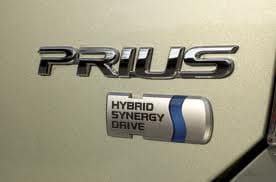 A recent NLJ story, “Judge Slashes ‘Highly Unreasonable’ Fee Request in Prius Highlight Case” reports that a federal judge in Los Angeles struck down the proposed attorney fees in a class action settlement against Toyota Motor Corp. over Prius headlights, calling the $4.7 million request “highly unreasonable” for a case with “narrow, not complex” legal work. “This could not be a simpler case,” said U.S. District Judge Manuel Real, who granted final approval of the settlement, which he estimated at more than $3.8 million, but reduced the fee request to 20 percent of that value or $766,000. He questioned why so many firms were involved, saying, “There was no need for five firms to be involved.”
A recent NLJ story, “Judge Slashes ‘Highly Unreasonable’ Fee Request in Prius Highlight Case” reports that a federal judge in Los Angeles struck down the proposed attorney fees in a class action settlement against Toyota Motor Corp. over Prius headlights, calling the $4.7 million request “highly unreasonable” for a case with “narrow, not complex” legal work. “This could not be a simpler case,” said U.S. District Judge Manuel Real, who granted final approval of the settlement, which he estimated at more than $3.8 million, but reduced the fee request to 20 percent of that value or $766,000. He questioned why so many firms were involved, saying, “There was no need for five firms to be involved.”
Eric Gibbs, a partner at San Francisco’s Girard Gibbs, lead counsel for the plaintiffs, said he was pleased to see the settlement approved despite the reduced fee award. “My firm worked hard to get the settlement benefit for the class,” he said. “As for the fee award, we’ll need to sit down and weigh the court’s comments against the record that the court has before it, and use that preface to evaluate what our next steps ought to be.”
Toyota attorney Michael Mallow, a partner in the Los Angeles office of Loeb & Loeb, questioned why so many firms were needed and called their billing records “inherently unreliable by bloated timekeeping, unnecessary work, and contradictory statements.” He wrote that the fee request was “grossly excessive” –particularly since he valued the settlement at about $3.8 million. He cited the U.S. Court of Appeals for the 9th Circuit’s Aug. 19 ruling in the Motorola Bluetooth headsets litigation. The 9th Circuit rejected a settlement, ruling the trial judge had failed to cross-check the amount the plaintiffs could have demanded by billing at their usual rates--called the “lodestar” amount--to what they would have received were their fees based on a percentage of the settlement.
Gibbs, who estimated the value of the Prius settlement at more than $4 million, wrote that the Bluetooth case was nothing like his own, which involved “a high degree of success” for class members. He disputed Toyota’s calculation of how much future warranty repairs were worth. Under such a calculation, Gibbs wrote, the settlement amount would be closer to $6.35 million, and the plaintiffs’ attorney fees would represent only 31 percent of its value.
In reducing the fee award, Real cited the number of pages of each major documents filed in both cases—one of which he called a “form” complaint that was a “piggyback” to the first complaint. He not that mediation lasted just one day and that much of the information used by plaintiffs’ attorneys was in the public record, including the National Highway Traffic Safety Administration’s report. He noted that the case involved only two months of discovery, making plaintiffs’ attorneys more akin to “negotiation agents” for the class than actual litigators confronting “new legal issues.” As for the billing records submitted, Real found them “most difficult, if not impossible, to decipher.”
